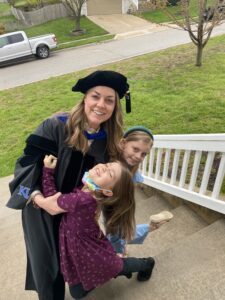UW-Whitewater
Assistant Professor
Department of Special Education
Courtney Wilt is an Assistant Professor of Education at the University or Wisconsin at Whitewater. Courtney’s research examines how minoritized disabled youth, and their families, experience and counter interacting oppressions, such as racism and ableism, particularly during the transition to adult life. She is concerned with building frameworks and practices that disrupt educational inequities during transition planning that lead to desired and sustained outcomes. With this overarching goal, Courtney teaches primarily undergraduate education courses on family and community partnerships and interconnectedness that center a disability-justice framework.
TEACHING AND LEARNING PHILOSOPHY
My pursuit of equitable education opportunities for all learners is central to how I position myself as an inclusive educator. I draw from Waitoller & Kozleski (2017) to situate inclusive education as a continual pursuit across three dimensions of justice: (a) the redistribution of access to and participation in quality opportunities to learn, (b) the recognition and valuing of all students’ differences as reflected in content, pedagogy, and assessment tools, and (c) the creation of more opportunities for non-dominant groups to advance claims of educational exclusion and their respective solutions. Thus, inclusive educators must interrogate social hierarchies and the processes that sustain them to disrupt multi-faceted forms of exclusion in educational contexts. For example, as an assistant professor of Special Education, I locate disability as a heterogeneous group with fluid, intersecting boundaries: Disability can operate as political and personal identity, as an inherent and empowering component of self, and disablement can occur within socio-spatial environments (e.g., persons may be disabled by relations to power/environmental structures). Given this complexity, identifying and disrupting forces such as ableism is contextual and collective—a teaching and learning process in which knowledge and action are generated together in safe, purposeful spaces. In short, I approach this task through prioritizing (a) humanizing relationships with high expectations, (b) strategic implementation of teaching practices, and (c) continual pursuit of critical consciousness.

